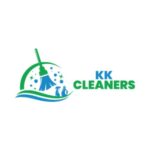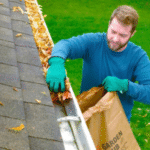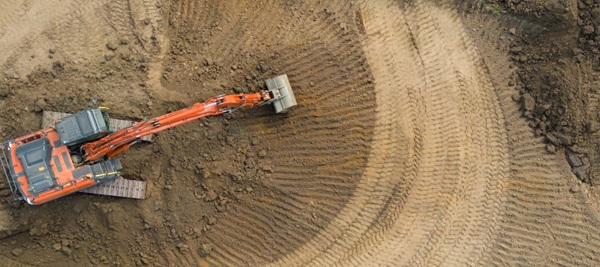Waste management in Southampton is a crucial component in ensuring the city maintains its clean environment and sustainable development. The city’s approach to waste management combines comprehensive services, education, and innovation, aiming to reduce landfill use and encourage recycling. Southampton offers various waste management options for residents, businesses, and even visitors, contributing to a cleaner and greener urban space.
Importance of Waste Management
Proper waste management holds several significant environmental benefits. It not only helps to reduce the amount of waste sent to landfills, but it also aids in conserving natural resources by promoting recycling. Effective waste management contributes to the city’s sustainability goals by reducing pollution, protecting wildlife habitats, and decreasing the carbon footprint.
Waste Management Services in Southampton
Southampton offers an extensive range of waste management services designed to meet the needs of its diverse population. Whether you’re a resident or a business owner, Southampton has specific waste disposal options for you.
General Waste Collection
For most households in Southampton, general waste collection services are available on a regular basis. Local authorities typically offer weekly or bi-weekly collections of non-recyclable waste. Southampton residents can arrange for bulky waste collections for items that cannot fit in standard bins.
Commercial Waste Management
Southampton’s business community is supported by commercial waste management services. Businesses can set up custom waste disposal services to accommodate their operations. This includes regular waste collections, recycling services, and specialized disposal for hazardous materials.
Recycling Services
Recycling is one of the cornerstones of Southampton’s waste management strategy. The city encourages residents to sort their waste properly. Glass, paper, plastic, and metals are recycled in a segregated system, reducing the environmental impact and promoting the reuse of materials.
Food Waste Management
Food waste is a major contributor to landfills, and Southampton offers specific services for the disposal of food scraps. Residents can separate food waste in designated bins, which is then composted or processed for biogas production, significantly reducing landfill use.
Regulations and Guidelines
Southampton has established clear regulations to help the public manage waste effectively. Local laws require that all waste be sorted and disposed of in an environmentally responsible manner. These regulations cover everything from general waste to hazardous waste disposal.
Waste Sorting Rules
Understanding how to properly sort waste is key to Southampton’s recycling efforts. Residents are expected to separate recyclables, food waste, and non-recyclable waste into different bins. Failure to follow these rules can lead to fines and other penalties.
Landfill Diversion Targets
Southampton has set ambitious goals to divert as much waste as possible from landfills. The city aims to reduce its landfill waste by increasing recycling and composting rates. The ultimate goal is to become a zero-waste city in the near future.
Hazardous Waste Disposal
For hazardous materials such as chemicals, paints, or electronic waste, Southampton provides designated drop-off locations. Proper disposal of hazardous waste is essential to prevent harm to the environment and public health.
Sustainability Initiatives
Southampton is at the forefront of sustainability efforts, particularly in waste management. The city actively promotes initiatives designed to reduce waste production and improve recycling.
Green Initiatives in Southampton
The local government has invested in green initiatives such as composting, energy recovery, and waste-to-energy projects. The goal is to reduce the carbon footprint and create a more sustainable city environment.
Community Engagement Programs
Southampton encourages residents to get involved in waste reduction efforts through community-based programs. Local events, recycling drives, and educational workshops help raise awareness and foster a collective responsibility toward waste management.
The Role of Education in Waste Management
Public education is essential to the success of any waste management program. Southampton’s local authorities work to educate residents about recycling practices, the importance of reducing waste, and the benefits of composting.
Zero-Waste Lifestyle
Aiming for zero-waste living is a growing trend in Southampton. More residents are adopting practices such as composting, reusing items, and reducing single-use plastics in their daily lives. This lifestyle approach helps decrease the amount of waste generated and supports the city’s sustainability goals.
Technology and Innovation
Southampton is embracing cutting-edge technologies to improve waste management practices.
Smart Waste Bins
Smart waste bins equipped with sensors are being used in various parts of Southampton to monitor waste levels and optimize waste collection schedules. These bins help reduce waste overflow and increase efficiency in waste management.
Waste-to-Energy Projects
To reduce landfill waste and generate energy, Southampton has implemented waste-to-energy projects. These projects convert non-recyclable waste into energy, providing a cleaner and more sustainable alternative to traditional waste disposal methods.
Challenges in Waste Management
Despite its efforts, Southampton faces several challenges in waste management. The city deals with increasing waste volumes and public awareness gaps, which can hinder effective recycling and waste reduction.
High Volume of Waste
As the population of Southampton grows, so does the volume of waste produced. Tackling the rising waste volume while meeting sustainability goals is a key challenge for local authorities.
Public Awareness and Participation
Encouraging all residents to actively participate in waste reduction efforts is vital. Despite many residents being engaged, some may still lack the knowledge or motivation to properly manage their waste.
The Future of Waste Management in Southampton
With evolving technologies and growing environmental concerns, waste management service systems are expected to continue improving. New policies and innovations are being implemented to reduce waste and create a more sustainable future for the city.
Frequently Asked Questions (FAQ)
What can I recycle in Southampton?
Residents of Southampton can recycle items such as paper, glass, plastic, and metal. Specific instructions for each material are provided by the local council.
How can businesses reduce waste in Southampton?
Businesses in Southampton can implement recycling programs, reduce single-use plastics, and consider waste-to-energy options to minimize their environmental impact.
Where can I dispose of hazardous waste?
Hazardous waste, such as chemicals or electronic items, should be disposed of at designated drop-off points in Southampton. Check the local council website for locations.
Are there any waste reduction programs in Southampton?
Yes, Southampton offers community programs, including recycling initiatives and public education campaigns, to reduce waste production.
How can I minimize my food waste?
Residents can minimize food waste by planning meals, composting food scraps, and donating excess food to local charities.
What is the impact of waste management on the environment?
Proper waste management reduces pollution, saves natural resources, and decreases the city’s carbon footprint, contributing to a healthier environment.
- Comprehensive Guide to Waste Management in Southampton: Top 10 Tips for Effective Waste Disposal
- Learn all about waste management in Southampton, including services, regulations, recycling tips, and how to reduce waste efficiently.
- Waste Management
Related posts:
 Can Residential End of Lease Cleaning Help You Get Your Bond Back?
Can Residential End of Lease Cleaning Help You Get Your Bond Back?
 Tips for Selecting the Best Kitchen Remodeling Services For Your Home
Tips for Selecting the Best Kitchen Remodeling Services For Your Home
 Comprehensive Overview of Gutter Cleaning Warrandyte – Safeguarding Your Home from Water Damage
Comprehensive Overview of Gutter Cleaning Warrandyte – Safeguarding Your Home from Water Damage
 The Best Construction Company Christchurch To Manage Your Project
The Best Construction Company Christchurch To Manage Your Project
 Gutter Cleaning Mannerim – Essential Service for Property Protection
Gutter Cleaning Mannerim – Essential Service for Property Protection
 Gutter Cleaning Nunawading: Safeguard Your Home with Professional Maintenance
Gutter Cleaning Nunawading: Safeguard Your Home with Professional Maintenance
 Gutter Cleaning Kilsyth South – Reliable Maintenance for a Safer Home
Gutter Cleaning Kilsyth South – Reliable Maintenance for a Safer Home
 Questions to Ask Your Architect and Contractor Before the Work
Questions to Ask Your Architect and Contractor Before the Work








